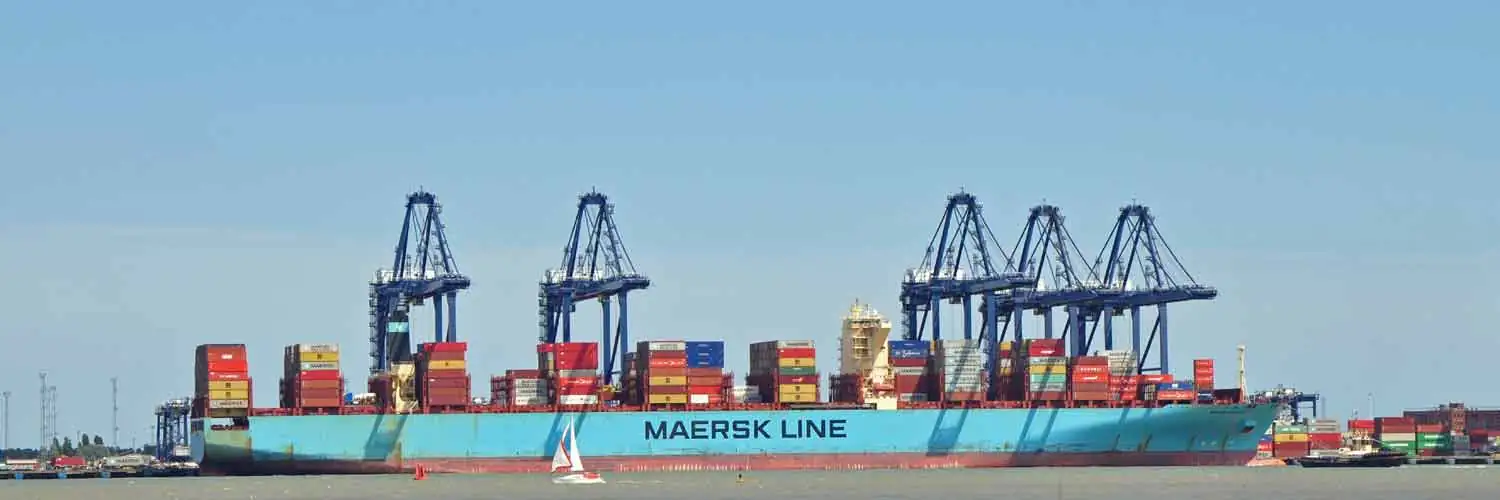What are freeports?
The UK previously had seven freeports between 1984 and 2012 and the locations included Liverpool, Southampton and the Port of Tilbury.
Post-Brexit plans were unveiled for freeports almost two years ago and the current UK government policy on freeports is a commitment to create those ten freeports around the UK. As in the past, freeports are usually located around shipping ports, or airports. New freeports in England include tax breaks for employers.
One of the most important considerations in selecting which locations should benefit from the bidding process, according to the government, was how a freeport could bring economic opportunities to poorer regions and “level up” the country. Other factors, such as the impact of the pandemic on local areas and ensuring freeports are “spread fairly” across England, were also taken into account.
Why are freeports returning?
One of the main hope is that freeports, which can be over 25 miles across, will help regenerate deprived areas.
In England, companies inside the sites will be offered temporary tax breaks. Including reductions to the tax companies pay on their existing property and also when they buy new buildings.
In the Queen’s Speech earlier this month, the government confirmed that freeport employers will be able to pay less national insurance for all new workers, from April 2022.
Locations in England
In the recent March Budget, the locations were announced as:
- East Midlands Airport
- Felixstowe and Harwich
- Humber region
- Liverpool City Region
- Plymouth
- Solent
- Thames
- Teesside
These are expected to start operating later in the year, subject to the successful completion of their business case assessments.
Freeports will benefit from incentives relating to customs, tax, planning, regeneration, infrastructure and innovation. The successful bidders in England will be able to access a share of £175 million of funding, depending on the submission of an outline business case.
Locations in Scotland, Wales and Northern Ireland
Scotland, Wales and Northern Ireland are expected to announce their own freeport policies and any incentives to companies. The UK government has said that it wants the whole of the UK to benefit from freeports. The policy areas underlying freeports are, however, a mixture of reserved and devolved powers. The Scottish Government has brought forward proposals for green ports.
Now that the UK has left the EU, it is no longer subject to the EU’s state aid rules but there are some questions over Northern Ireland, which still has to follow EU subsidy rules under the UK’s withdrawal deal.
Treasury Minister Steve Barclay has admitted the freeport model used in Great Britain will need to be “adapted” for Northern Ireland.
Northern Ireland’s devolved government says it is working with the Treasury to find out how much of the model it will be able to follow.
Critics
Critics point to the risk that they will simply transfer business away from other areas of the UK without increasing the overall size of the economy. There have also been concerns that they don’t boost employment overall, and moving economic activity from one place to another comes at a cost to the taxpayer.
Freeports and Brexit
There are about 80 freeports spread around the EU.
In a BBC article, Jonathan Branton, a partner at law firm DWF, says the UK does have more flexibility now it doesn’t have to follow EU rules.
He also points out tax breaks offered to freeport firms would no longer require prior agreement from the European Commission.
However, he adds that the Brexit trade deal – agreed by the UK and the EU – still requires subsidies to be justified, otherwise they could be challenged in UK courts.
In more extreme circumstances, the EU could respond to UK subsidies by introducing tariffs on some UK goods deemed to be damaging EU trade or investment.
And the UK will still be subject to World Trade Organization rules – which say you can’t introduce subsidies linked just to export performance.
